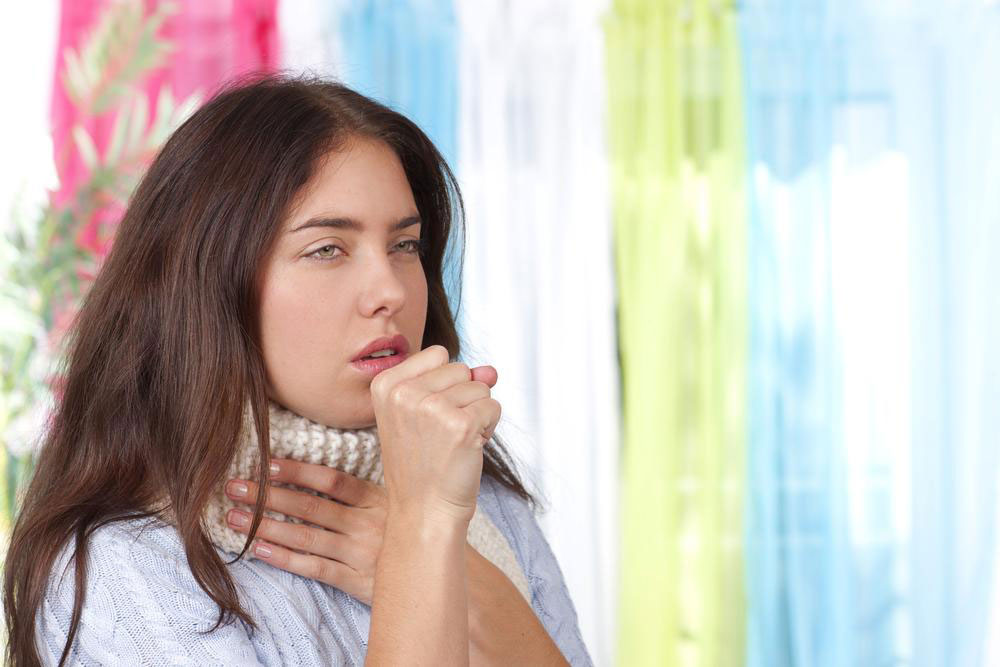All You Need to Know about Post Nasal Drip Cough
Post nasal drip cough is a common condition among children and adults. This condition can affect the normal functioning of a person’s life by causing sleeplessness and severe exhaustion. With the right diagnosis and early treatment, this condition can be brought under control.
What is post nasal drip cough?
The glands that line the nose, airways, throat, and the stomach produce mucus every day. Mucus helps keep foreign objects away from the nose and throat by trapping and destroying any bacteria or viruses.

However, when the body produces more mucus due to an allergy or infection, the mucus begins to thicken. The excess mucus comes out of the nose, and this condition is commonly referred to as a runny nose. Some of the mucus drains at the back of the throat, resulting in a condition known as post nasal drip.
A post nasal drip cough occurs due to the thickened mucus blocking the throat. It can affect a person for eight weeks or more if not treated properly. It is important to check with your doctor about the best treatments available.
Symptoms and causes of post nasal drip cough
A post nasal drip cough can cause severe irritation to the throat and nose. You may constantly experience a feeling of clearing your throat, and this feeling may be accompanied by pain while swallowing, headaches, an ear infection, a sinus infection, a hoarse voice, a scratchy feeling in the throat, a shortness of breath, and, in serious cases, it may even lead to coughing up blood.
There are several possible causes for this condition. Some of the causes are flu, allergies, sinus infection, certain types of medications for treating blood pressure and birth control, changing weather, dry or cold air, an object caught in the nose of a child, spicy food, or inhaling smoke or chemical fumes.
A cough can worsen if the mucus is not cleared regularly. This type of cough often gets worse at night, interrupting a person’s sleep and leaving a person very tired. Women are more likely to develop this type of cough as compared to men as their cough reflexes tend to be more sensitive than those of men, leading them to develop a severe cough.
Treatment of post nasal drip cough
The treatment depends on the cause of this type of cough. If a person has a severe cough due to a bacterial infection, antibiotics can help. However, in the case of a viral infection, antibiotics can’t do anything.
Antihistamines like Benadryl, loratadine, cetirizine, and levocetirizine can help with post nasal drip caused by viral infections or allergies. However, these can have side effects such as a dry mouth and dizziness. Some of them might even cause drowsiness.
It is always good to seek medical advice before taking them, and especially before giving them to young children. Nasal sprays can also help control post nasal drip caused by allergies. A doctor may prescribe cough suppressants if you are experiencing severe coughing that prevents you from getting sleep.
Drinking plenty of water can help thin out the mucus so that it easily drains out and does not block the sinuses and the ears. A neti pot can help flush out any bacteria or mucus out of your sinuses. Taking a hot shower or using a humidifier in the room can help improve the moisture content in the air so that a person can breathe more easily.
Hot liquids such as herbal teas and chicken soup can also help with the thinning of the mucus. Although these liquids do not cure post nasal drip cough, they help provide relief from a blocked nose and a sore throat. The consumption of liquids can also prevent a person from getting dehydrated.
Prevention and care
There are certain measures that can be taken to relieve the symptoms or prevent them from occurring altogether. Regular dusting and vacuuming of all the surfaces in your home must be done. Bedding and other linen should be washed regularly in hot water. Mattresses and pillows should be covered with fabric that prevents dust mites from entering.
Propping up pillows while sleeping can help in preventing the buildup of thick mucus in the throat, which often leads to coughing. Air filters in the home can help filter dust and other fine particles that can cause irritation and increase your cough. It is important to avoid being around people who smoke. Cigarette smoking or inhaling the smoke can worsen a cough.
It is important to visit a doctor immediately if you experience one or more symptoms, such as coughing up blood, bad-smelling mucus, or high fever. You should also consult a doctor if home remedies don’t seem to help. A CT scan, X-ray, or other tests may be recommended to determine the exact cause and probe for any possible underlying conditions.